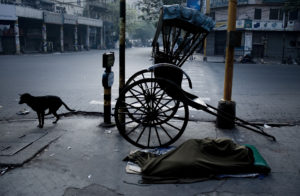Bengal resonates with many sentiments. That of valor, passion, intellect and uninhibited expressions.
It gave birth to the musical poesy of the sweet Bengali language. And, the heartfelt tete-a-tete at the tea stalls round the corner. Withstanding 500 years of Muslim dominion and 300 years of the British, the Partition at the onset of Indian Independence that formed the Indian state of West Bengal- the rest going to Bangladesh- Bengalis never ceased to carry forward the nuances of their rich culture and live life to the fullest attitude. The ever-regaling Bengali culture epitomizes art, entertainment, literature, culinary innovations and every aspect of finer living.
The French author Dominique Lapierre writes in The City of Joy on Calcutta (now called Kolkata) –the capital of West Bengal: “The vicissitudes of destiny had not completely obliterated so prestigious a heritage. Calcutta was still India’s artistic and intellectual beacon and its culture continued to be as alive and creative as ever, The hundreds of bookstalls of College Street were still laden with books – original editions, pamphlets, great literary works, publications of every kind, in every English, as well as in the numerous Indian languages”.
The fertile Gangetic deltaic land also initiated many a socio-political revolution. The Swadeshi movement or the fight for Independence spread it’s fire from this place. During that time, a socio-cultural renaissance emerged too, fighting gender discrimination and advocating women’s rights. This propelled progressive thinking nationwide. Later, in independent India, students joined hands questioning the Establishment by starting the Naxalbari movement in Bengal. Be it fighting the corporatocracy or the communist hegemony, Bengal still harbors idealistic, transformative romanticism.
Home to various creeds and communities, Kolkata has a unique association to Indian and global feel of multiplicity. Interesting, how different people contributed to the socio-economic fabric of Kolkata.
Bengaliness is not merely about Kolkata and the ethnic Bengalis. It’s about the feel-good moments, the heart-breaks, the impulses and yearnings of the people belonging to greater Bengal, scattered all over the world who felt, appreciated and engaged in Bengali trends and traditions. It’s about them, who imbibed and contributed a bit of Bengali in the global whirlpool.
Bengal Bee intends to touch a chord with all to whom Bengal matters.
Somanjana Chatterjee
Founder & Managing Editor
